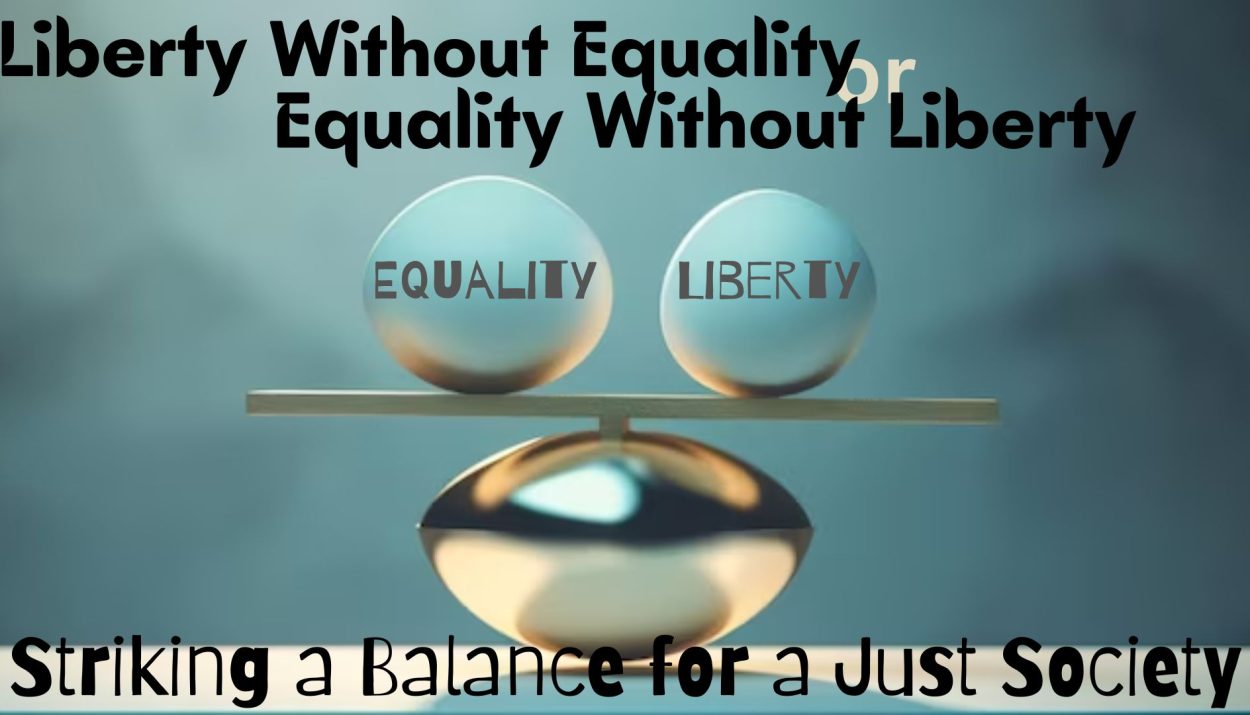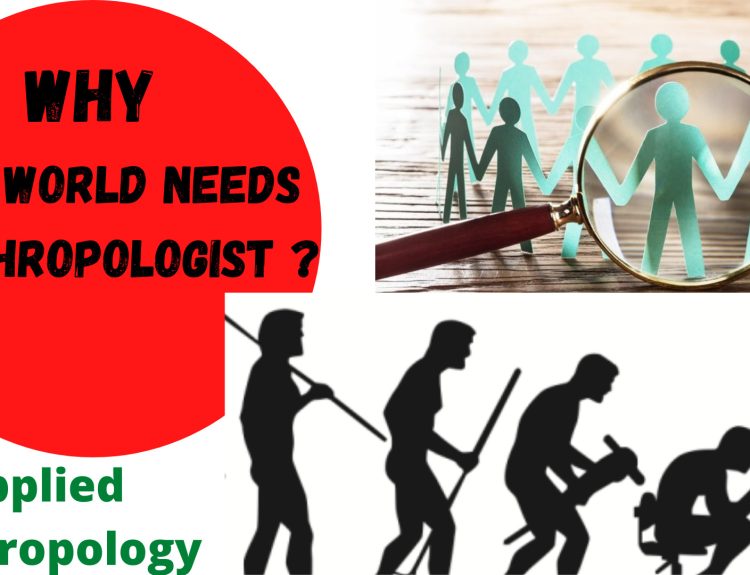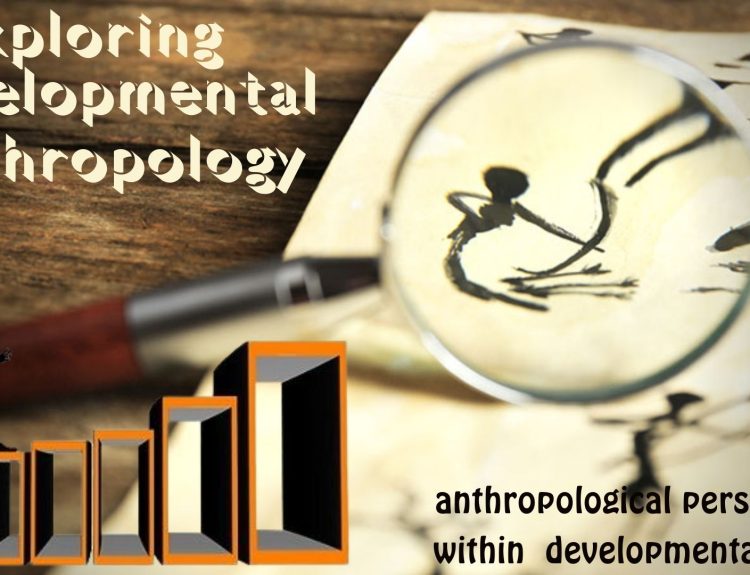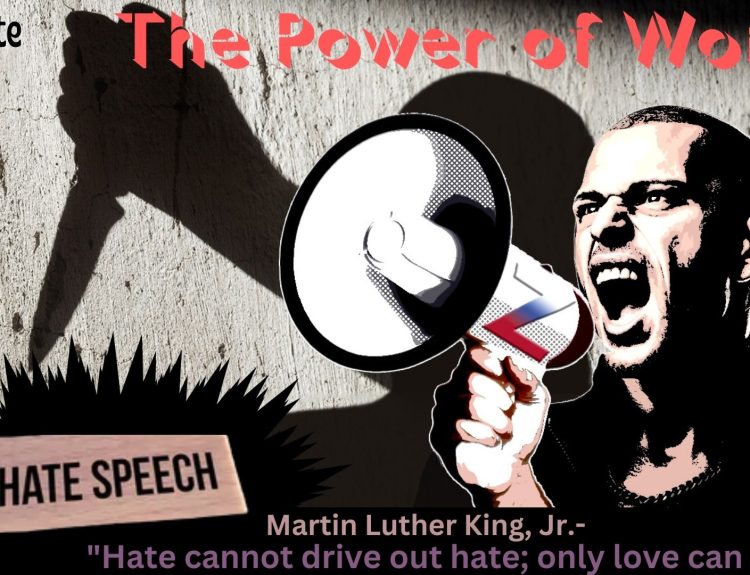The concepts of liberty and equality have long been central to political and philosophical debates. While liberty emphasizes individual freedoms and autonomy, equality focuses on fairness and justice. Striking the right balance between these two ideals is crucial for the creation of a just and harmonious society. In this article, we will explore the implications and challenges of both liberty without equality and equality without liberty, and highlight the significance of finding a middle ground that upholds both values.
Understanding Liberty and Equality
The term liberty and equality first appeared during the french revolution along with the term fraternity.
Liberty encompasses the ability of individuals to act, think, and express themselves without interference, as long as their actions do not infringe upon the rights and freedoms of others. Liberty involves personal autonomy, the right to make choices and the absence of coercion or undue influence. It is a cornerstone of democratic societies and is often protected by laws, constitutions, and human rights frameworks. Liberty is something that is given to the citizens via freedom, and where freedom is curtailed. Here, freedom is not absolute. In essence, liberty can be seen as a form of restricted or constrained freedom.
Equality refers to the state of being equal in rights, opportunities, and status. It implies that all individuals should be treated fairly and impartially, without discrimination based on characteristics such as race, gender, religion, socioeconomic status, or disability. Equality encompasses both equality of opportunity, ensuring that everyone has an equal chance to succeed, and equality of outcome, aiming to reduce disparities in wealth, resources, and social privileges. The principle of equality strives to create a just and inclusive society where all individuals are valued and have equal access to basic rights, justice, education, health care, and opportunities for personal development.
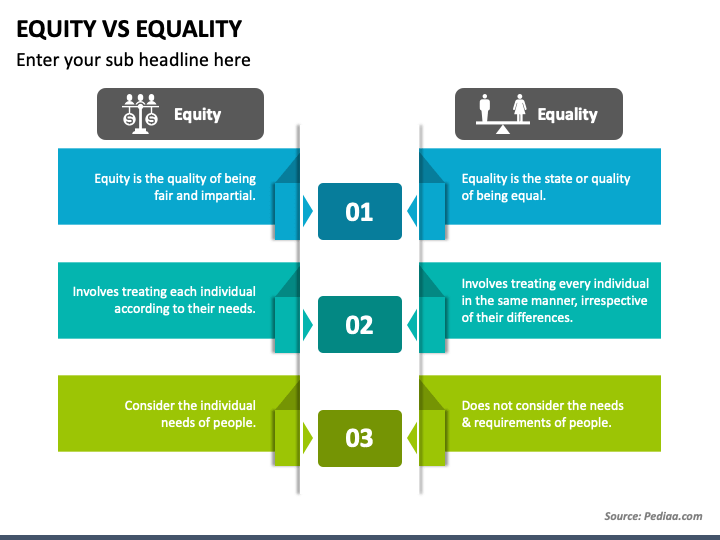
The Dangers of Liberty without Equality
Liberty and equality are two fundamental principles that form the bedrock of a just and democratic society. While liberty refers to the individual’s freedom to act and think as they choose, equality emphasizes fair treatment and opportunities for all members of society. While the pursuit of liberty is important, dangers arise when liberty is championed without a parallel commitment to equality. In such a scenario, certain groups or individuals can wield their freedom in ways that perpetuate inequality, leading to various social, economic, and political hazards. The consequences of liberty in the absence of equality are as follows:
- Social fragmentation and division within society.
- Widening economic disparities and wealth concentration.
- Erosion of democratic principles and institutions.
- Perpetuation of social injustices and discrimination.
- Loss of social cohesion and trust among individuals.
- Limited access to opportunities and resources for marginalized groups.
- Inequality of power and influence leads to unfair advantages.
- Potential for exploitation and abuse by those with greater liberties.
- Disruption of social stability and increased social unrest.
- The Undermining of fairness, justice, and equal rights for all.
The Pitfalls of Equality without Liberty
The consequences of equality without liberty are as follows:
- Suppression of individual freedom and autonomy.
- Potential for the rise of authoritarian regimes.
- Diminished incentives for personal and societal advancement.
- Loss of diversity and pluralism within society.
- Inefficient resource allocation and hindered economic growth.
- Erosion of personal responsibility and accountability.
- Stifling of creativity and innovation.
- Loss of personal agency and self-determination.
- Lack of checks and balances.
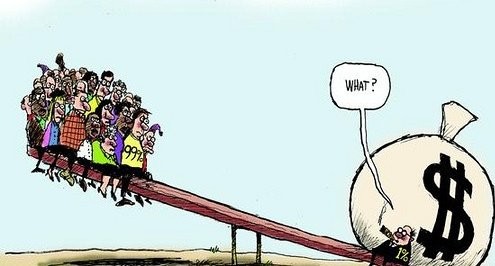
Achieving a Just Society: Finding the Middle Ground
To build a truly just and inclusive society, it is crucial to recognize that liberty and equality are interdependent. Liberty should be exercised within the boundaries of equal rights, protections, and opportunities for all individuals, ensuring that freedom is not misused to perpetuate inequality. By striving for both liberty and equality, societies can create an environment where individuals can flourish while fostering a sense of fairness, social cohesion, and collective progress.
To achieve a balance, societies must focus on creating equal opportunities while preserving individual rights and freedoms. Equal access to education, healthcare, and employment opportunities is essential for breaking down barriers and promoting social mobility. Simultaneously, safeguarding individual liberties such as freedom of speech, religion, and assembly fosters a diverse and inclusive society where people can express themselves freely.
Central to the balance between liberty and equality is the rule of law. Upholding the rule of law ensures that both liberty and equality are protected. Laws and regulations should be designed to prevent discrimination, protect individual liberties, and promote equality under the law. This ensures that no one is above the law and that justice is served impartially.
Progressive taxation is another important aspect of balance. Implementing progressive taxation policies allows for a fairer distribution of wealth and resources. It ensures that those with higher incomes contribute a larger proportion of their earnings to address economic inequalities. This approach respects individual economic freedoms while striving for a more equitable society.
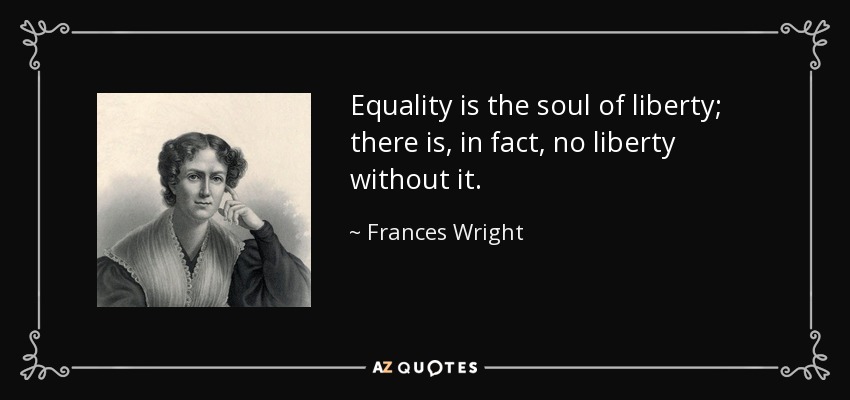
Affirmative action is a tool that can be used to address historical disadvantages and promote equal opportunities. These targeted measures provide additional support to marginalized groups, aiming to level the playing field. When implemented properly, affirmative action allows for greater equality without infringing upon individual liberties.
Promoting open dialogue, tolerance, and inclusion is vital in maintaining the balance between liberty and equality. Society should encourage respectful conversations, embrace diverse perspectives, and ensure that marginalized voices are heard. By fostering social cohesion, societies can navigate the complexities of balancing these principles.
Conclusion
Liberty and equality are two fundamental pillars of a well-functioning society. However, emphasizing one at the expense of the other can lead to dire consequences. A society that solely prioritizes liberty risks deepening socio-economic disparities and marginalizing vulnerable populations.
Conversely, a society that focuses exclusively on equality may suppress individual rights and stifle innovation. Striking a balance between these ideals is essential for creating a just and inclusive society. By building a robust social safety net, promoting equal access to education and health care, and ensuring the legal protection of individual rights, we can foster a society that upholds both liberty and equality, ultimately leading to a harmonious and prosperous future.
Read more
The conflict between liberty and equality


